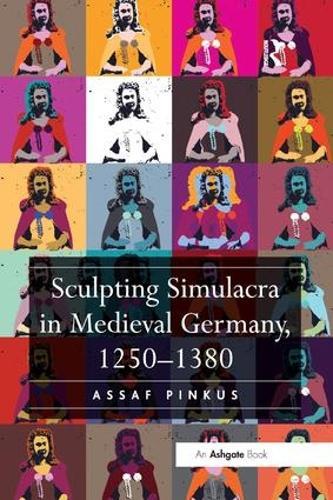Overview
Engaging with the imaginative, nonreligious response to Gothic sculpture in German-speaking lands and tracing high and late medieval notions of the ’living statue’ and the simulacrum in religious, lay, and travel literature, this study explores the subjective and intuitive potential inherent in thirteenth- and fourteenth-century sculpture. It addresses a range of works, from the oeuvre of the so-called Naumburg Master through Freiburg-im-Breisgau to the imperial art of Vienna and Prague. As living simulacra, the sculptures offer themselves to the imaginative horizons of their viewers as factual presences that substitute for the real. In perceiving Gothic sculpture as a conscious alternative to the sacred imago, the book offers a new understanding of the function, production, and use of three-dimensional images in late medieval Germany. By blurring the boundaries between viewers and works of art, between the imaginary and the real, the sculptures invite the speculations of their viewers and in this way produce an unstable meaning, perpetually mutable and alive. The book constitutes the first art-historical attempt to theorize the idiosyncratic character of German Gothic sculpture - much of which has never been fully documented - and provides the first English-language survey of the historiography of these works.
Full Product Details
Author: Assaf Pinkus
Publisher: Taylor & Francis Ltd
Imprint: Routledge
Weight: 0.780kg
ISBN: 9781138548060
ISBN 10: 1138548065
Pages: 264
Publication Date: 25 April 2018
Audience:
College/higher education
,
General/trade
,
Tertiary & Higher Education
,
General
Format: Paperback
Publisher's Status: Active
Availability: In Print

This item will be ordered in for you from one of our suppliers. Upon receipt, we will promptly dispatch it out to you. For in store availability, please contact us.
Reviews
Pinkus uses pertinent examples throughout to argue his case for a multiplicity of meaning in these Gothic sculptures - Judith Collard, Otago University
""Pinkus uses pertinent examples throughout to argue his case for a multiplicity of meaning in these Gothic sculptures"" – Judith Collard, Otago University ’A gripping read that reassures me that careful, ambitious, radical scholarship is still possible within the field of medieval art history. Assaf Pinkus offers a bold and smart analysis based in careful readings of a wealth of classic and recent scholarship, set against the author’s own observations. The study is provocative and timely, clearly written and jargon free. I look forward to seeing the scholarly reaction to it and to using it in teaching. It is a landmark book and one with which all scholars of Gothic art will need to contend.’ Nina Rowe, Fordham University, USA 'Assaf Pinkus’s Sculpting Simulacra in Medieval Germany, 1250-1380 presents an understanding of Gothic statuary derived from medieval theories of image-production and provides a fresh interpretation of Gothic statues as similitudes of real people so that presence of the represented person is manifested to the observer.' Hortulus 'Assaf's provocative book should encourage more anglophone scholars to study these marvellous works.' Art Newspaper
Author Information
Assaf Pinkus, Associate Professor and Chair of the Art History Department at Tel Aviv University, works on production, patronage, spectatorship, and response in later medieval German sculpture and trecento painting.




